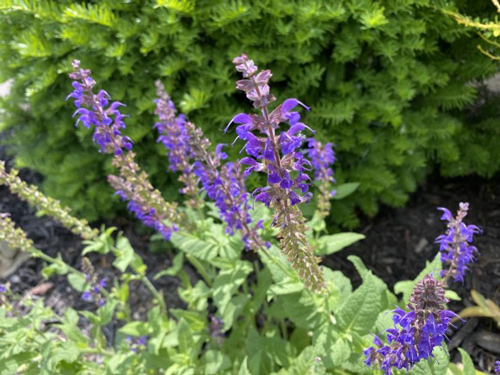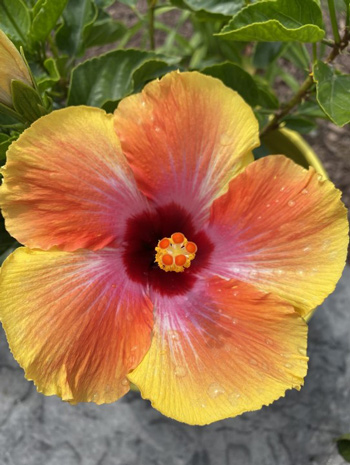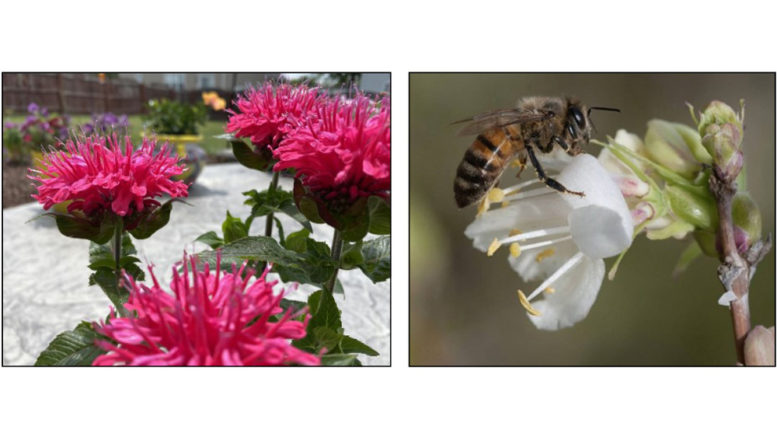By MEGAN RATHZ
When Nature Speaks
“If you look the right way, you can see that the whole world is a garden.” Every time I read those brilliant words of Frances Hodgson Burnett from the beloved The Secret Garden with my fourth and fifth grade students, I am left awestruck.
It is not just the eloquent and timeless story that I love, it is that the words are so poignant and true. Gardens are essential for life, most specifically pollinator gardens.
According to The National Pollinator Garden Network, “One out of every three bites of food we put into our mouth comes from a pollinator.” Pollinators include butterflies, birds, bees, bats, hummingbirds, wasps, flies, moths, beetles and other creatures. Pollinators are a necessity for flowering plants. Without pollinators many essential crops, medicines and spices would no longer be available to us. Did you know pollinators even play a role in producing coffee and chocolate?
According to pollinator.org, “Pollinators visit flowers to drink nectar or feed off of pollen and transport pollen grains as they move from spot to spot, and without the actions of pollinators, agricultural economies, our food supply, and surrounding landscapes would collapse.”

Photo provided by Megan Rathz
It is certainly an appropriate time to discuss pollinators and their role in our backyards and ecosystem since Pollinator Week is celebrated June 20-26. This week raises awareness to see what we can do to protect them. Pollinators are in danger mainly because of the loss of their habitats and the increased use of pesticides.
What can we do to help them? Choose with purpose when selecting plants for your garden. Select native plants in your area and be deliberate with what you plant. A native plant is one that is indigenous to where one lives and exists naturally. They are typically sturdy and easy to grow. They are conducive to a strong environment for pollinators. Some native plants to Indiana include Black-eyed Susan, Coneflower, Milkweed (the monarch butterflies will thank you), Columbine, Wild Geranium and Cardinal flower, just to name a few.
It is not just about aesthetics with plant selection; plant with intention. Make sure to find balance in bloom times. Select a variety of plants that bloom throughout the various seasons. Some of the other best plants to add to your backyard that attract pollinators include Marigolds, Verbena, Nasturtium, Lavender, Cosmos, Zinnia, Aster, Bee Balm (my favorite), Sunflower, Oregano, and many more!
Think about where to plant your garden. Many plants that are nectar-producing are sun-loving plants. Find a location that will provide ample sunlight for your pollinator plants to thrive. Know your soil; it matters! One place to check out and add plants to your garden if you are just starting out or looking to find something special is the Hamilton East Public Library’s Seed Library. You can select from a variety of seeds and leave some for others, too.

Photo provided by Megan Rathz
Nature is speaking to us. It is imploring us to restore balance in our own backyard or balcony to help these vital creatures function and perform.
One does not need to have a sprawling expanse of acreage to contribute to the well-being of and offer protection to pollinators. Living in the state of Indiana in Hamilton County, agriculture is not only essential for our fellow Hoosiers to earn a living, but for all of us to eat. We need pollinators and they need us.
Elizabeth Lawrence describes the most important pollinator in the garden, the honeybee, “The hum of bees is the voice of a garden.” There is a reason we describe someone who is a productive worker as “busy as a bee.” Pollinators are protecting and providing for us. What can we do in our corner of the world to protect them?
Nature is speaking. Are we listening?
Megan Rathz is a wife, mother and teacher. She says everything she has ever learned in life came from her Master Gardener mother.


Absolutely wonderful.
Thank you so much for all this information! Your article was interesting and very informative.
I love reading your work, Megan, and I really love that you are so inspired by your mother.
Refreshing article. These pollinators are so important for our ecosystem. This was well written and inspiring to stay on top of my garden.
Amazing! Such an wonderful article! Thanks so much!
Loved your article and writing style! I see why they asked you to do this. You are really good at it. ❤️
Beautiful photos and article. Looks like I have another reason to go buy more plants!
Lovely article on the importance of plants and gardens.
I would want to clarify your point about the efficiency and “hum” of the honeybee. A honeybee is a non-native domesticated species (like chickens or cows) and is less efficient as a pollinator as compared to our native bee species such as mason bees, cellophane bees and leafcutter bees.
Our native bees need our help and attention more so than the European Honeybee and are the real definition of “busy as a bee”.
Best Wishes